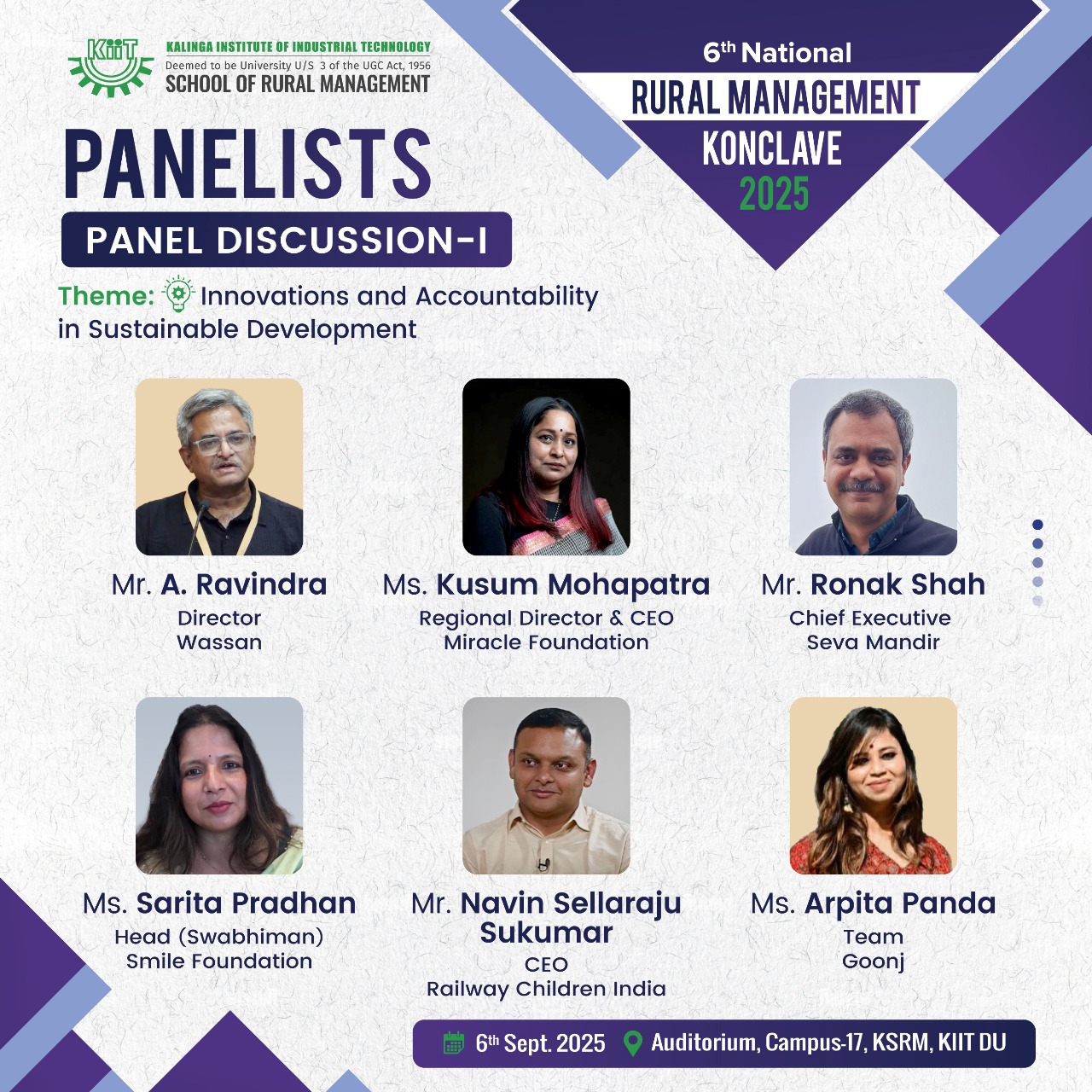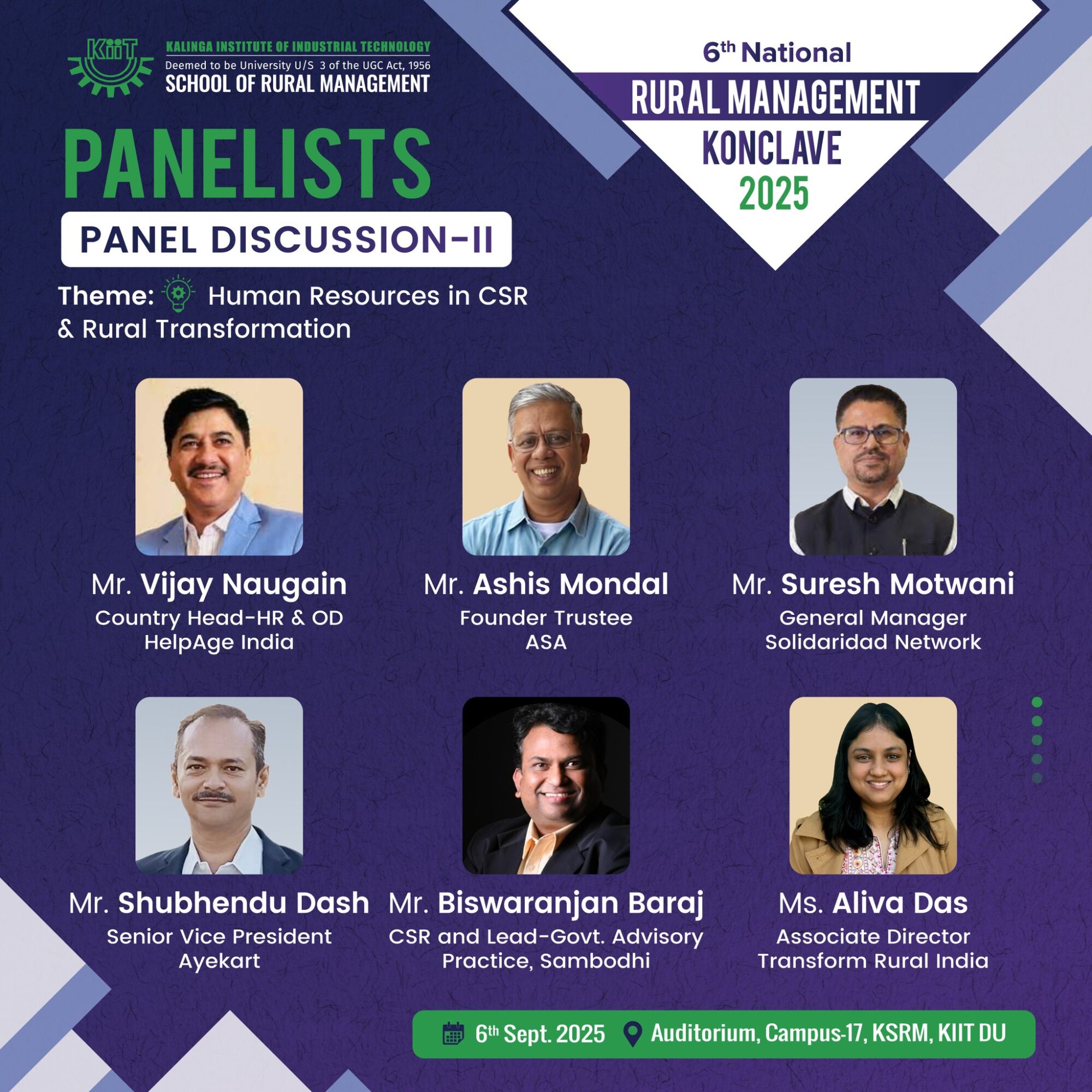Context
Over the years, various development strategies and programs have been playing a crucial role in transforming the lives and livelihoods of rural communities in India. However, a noticeable socioeconomic gap persists between rural and urban population. Rural development interventions often face hurdles in terms of adapting technologies, lack of effective collaborations, uncertainty, risk and limited institutional support. Challenges of aligning skills with emerging market demands, and ensuring cost-effective livelihood solutions remain inadequately addressed. Moreover, managing rural development today requires an integrated approach in critical areas such as livelihood, education, healthcare, biodiversity & environmental sustainability, climate change, disaster risk reduction, skill development, and access to finance.
Objective
KIIT School of Rural Management (KSRM), KIIT University is one of the pioneer Rural Management schools in India. It grooms rural development professionals through its flagship programs, i.e. MBA in Rural Management and MBA in Agri-Business Management. KSRM has been organizing annual national level Rural Management Conclaves since 2019. The overall objective of the conclave is to bring the leaders from development and business sectors to a common platform and discourse on various challenges and way forward. This year, the following two themes are identified for dialogue: ‘Innovations, technology adaptations, risk management and accountability in sustainable development Initiatives’; and ‘Human resources (HR) in effective corporate social responsibility (CSR) and rural transformation’.
Theme-1
Innovations, Technology Adaptations, Risk Management and Accountability in Sustainable Development Initiatives
Addressing complex challenges such as poverty, climate change, inequality, and resource depletion require a multifaceted and integrated approach. Traditional development models often fall short in meeting the diverse and evolving needs of communities. As a result, innovation, adaption of technologies, sustainability, and accountability have emerged as core areas of effective and inclusive development interventions. Innovation now spans beyond technology to include policy reforms, digital tools, and grassroots solutions. Accountability strengthens transparency and trust through monitoring, evaluation, and inclusive decisionmaking, especially involving marginalized groups.
In this context, the following questions need special attention:
How can we demonstrate the shift from delivery model to enabling model with sustainability perspective inclusive of innovation, technology adaptation, risk management and accountability?
In which ways livelihoods, climate change effects, digital transformation, social justice and public policy can shape the future of development?
- How to address the challenges of maintaining/improving the capacity to sustain the benefits from development interventions?
What are the frontiers of sustainability in development?
Theme-2
Human Resources (HR) in Effective Corporate Social Responsibility (CSR) and Rural Transformation.
Corporate Social Responsibility (CSR) has been evolved as the catalyst for positive change, shifting from a philanthropic endeavour to a strategic framework deeply integrated into business operations. CSR now acts as a bridge, connecting business goals with social value creation and fostering sustainable development. Human Resources (HR) has indeed become a facilitator in Corporate Social Responsibility (CSR) initiatives. HR plays a crucial role in shaping and implementing CSR strategies.
In this context, the following questions need special attention:
What are the challenges faced by the professionals in effective CSR and rural transformation?
How HR addresses the above challenges?
How can collaboration/convergence with CSOs, academia, government and media be more effective for rural transformation?
What are the frontiers of enabling young professionals for CSR?
For further Information please Contact
Prof. Damodar Jena
Convenor
Prof. Debasish Mohapatra
Co-Convenor
Prof. Surendra Jena
Co-Convenor




